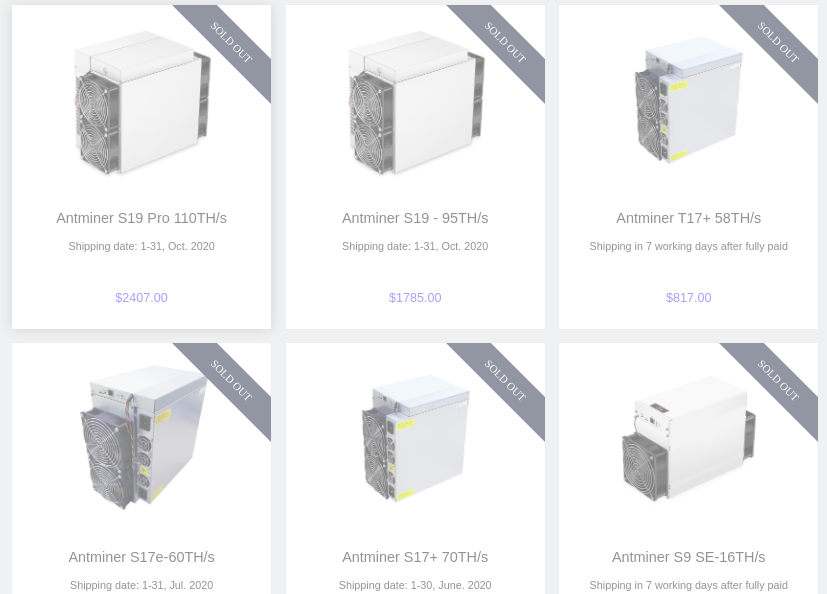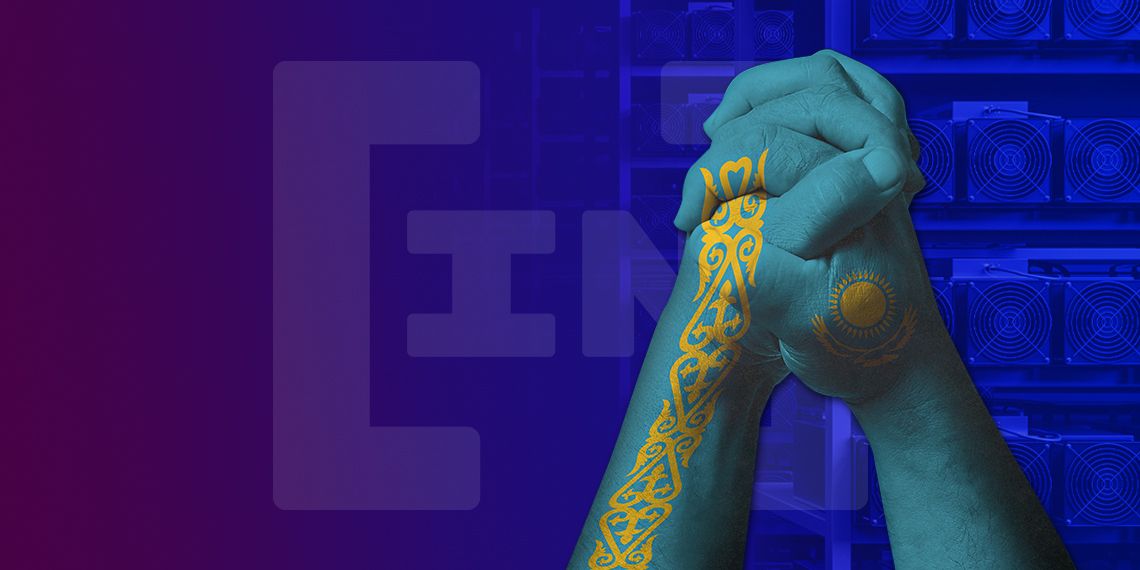Kazakhstan is one of the world’s best destinations for crypto mining: electricity costs just $0.04/kWh and there is no tax on mining revenue. It’s also relatively easy to start a mining business in Kazakhstan through specialized hosting companies even if you are located abroad.
The authorities in Kazakhstan have a remarkably progressive stance on crypto mining. First of all, mining earnings are tax-free as long as they aren’t converted into fiat money. Second, the government considers mining a potential source of foreign money for the economy. According to Reuters, the Ministry of Digital Development hopes to attract over $700 million in investments to its network of mining farms.
 But what if you are not a state-level investor but a private entrepreneur wishing to benefit from Kazakhstan’s low energy prices? The good news is that hosting mining equipment in this Central Asian country is relatively easy as long as you are aware of the potential costs and risks, so here are four important steps to remember.
But what if you are not a state-level investor but a private entrepreneur wishing to benefit from Kazakhstan’s low energy prices? The good news is that hosting mining equipment in this Central Asian country is relatively easy as long as you are aware of the potential costs and risks, so here are four important steps to remember.
 It’s worth making a list of suitable models by different manufacturers and subscribing to their newsletters, so that you don’t miss the moment when they go on sale again.
It’s worth making a list of suitable models by different manufacturers and subscribing to their newsletters, so that you don’t miss the moment when they go on sale again.
 But what if you are not a state-level investor but a private entrepreneur wishing to benefit from Kazakhstan’s low energy prices? The good news is that hosting mining equipment in this Central Asian country is relatively easy as long as you are aware of the potential costs and risks, so here are four important steps to remember.
But what if you are not a state-level investor but a private entrepreneur wishing to benefit from Kazakhstan’s low energy prices? The good news is that hosting mining equipment in this Central Asian country is relatively easy as long as you are aware of the potential costs and risks, so here are four important steps to remember.
Step 1: buying mining hardware
A recent mining industry report by Tokeninsight confirms the dominance of Chinese ASIC manufacturers. Over 70% of all Bitcoin mining hardware is made in China, mostly by Bitmain, Whatsminer, Avalon, Innosilicon and now also by the newest entrant, Strong-U. You can buy ASICs from any of the major brands to host them in Kazakhstan. Due to the COVID-19 pandemic, manufacturers have experienced major disruptions and shortages of spare parts. Because of this, you may have to wait if you wish to purchase a specific model from the manufacturer. For example, as of early September 2020, all Antminer models from Bitmain were listed as “sold out” on the official website. It’s worth making a list of suitable models by different manufacturers and subscribing to their newsletters, so that you don’t miss the moment when they go on sale again.
It’s worth making a list of suitable models by different manufacturers and subscribing to their newsletters, so that you don’t miss the moment when they go on sale again.
Step 2: getting your ASICs delivered to Kazakhstan
Manufacturers usually offer shipping with DHL or FedEx. However, these are the most expensive providers. It’s better to use local Chinese or Kazakh companies – especially since the two countries share a border, so land transport links are very active. The best providers charge from $5 per kilogram and take less than seven days to ship the order. Unless you are proficient in Kazakh, Russian or Mandarin, the best way to access low-cost shipping is to ask either the seller or your chosen hosting provider in Kazakhstan about the options. They should know which transport companies offer the best rates. Hosting companies, such as Xive, can also help you get the equipment cleared at the customs.Step 3: customs clearance
Like most electronic products, mining hardware must first clear customs before it can enter Kazakhstan. Luckily, Kazakh VAT for ASICs is one of the lowest in the region: only 12% (compared to 18% in Russia, for example). As for the required documents, there are circa ten of them, including an invoice, packing list, contract for import, conformance certificate, etc. In reality, mining entrepreneurs never occupy themselves with customs documentation. Hosting companies routinely provide customs support and can prepare all the necessary papers. Expect to pay 12% of the invoice amount as VAT, plus circa $600 to $700 for the service package, including clearance, warehouse storage, brokerage and an invoice.Step 4: choosing a hosting provider
There are three types of companies that offer hosting services for miners:- Intermediaries posing as hosting companies. Such a go-between will claim to have their own mining rigs and data centers and even show you pictures and videos. But in reality they are nothing but intermediaries working for a commission. If you sign a contract with them, your ASICs will be hosted on a legitimate third-party farm — you’ll just pay extra to the intermediary.
- Small hosting providers. These hosts often attract clients by offering very low electricity fees — $0.035/kWh to $0.038/kWh — and hosting charges. The reason is that they often hook into a power supply illegally, and their data centers are nothing but old decrepit sheds. These “farms” are badly ventilated, with old electric cables and non-existent security systems. This directly affects hardware uptime and hashrate stability, as well as the longevity of the ASICs. Expect the equipment to wear down fast. Sometimes manufacturers refuse to replace such ASICs if they break down while still in warranty due to abnormal wear and tear.
- Medium-sized and large hosting companies. When working with a host from this category, you’ll pay $0.04 to $0.05 per kWh, depending on how many ASICs you have and how much energy they consume. Before you sign a contract, make sure to learn as much as you can about the provider, including from independent sources.
Summing up
Kazakhstan may seem like a faraway and exotic destination, but it’s actually one of the best places to host your mining hardware. The only difficulties are getting the hardware shipped to Kazakhstan with a local transportation company and getting it cleared at the customs, but these are the things that a local Kazakh hosting provider can help you with. Another problem is distinguishing between legitimate turnkey providers from intermediaries. Once you’ve resolved these issues, you’ll enjoy low electricity prices, a crypto-friendly regulatory climate, and tax-free revenues – something that few countries can offer to mining entrepreneurs. The views expressed here are those of the author’s and do not necessarily represent or reflect the views of BeInCrypto. Written by Didar Bekbauov, a co-founder of the Xive, a crypto mining hosting company located in Kazakhstan. Didar’s crypto projects include building three data centers for Bitcoin mining, a marketplace for renting hash power, and a monitoring system for managing large scale mining farms.Disclaimer
In compliance with the Trust Project guidelines, this opinion article presents the author’s perspective and may not necessarily reflect the views of BeInCrypto. BeInCrypto remains committed to transparent reporting and upholding the highest standards of journalism. Readers are advised to verify information independently and consult with a professional before making decisions based on this content. Please note that our Terms and Conditions, Privacy Policy, and Disclaimers have been updated.

Ana Alexandre
Ana became a translator and reporter at Cointelegraph in mid-2017 and now runs the Feature Desk at BeInCrypto where she develops stories and manages a passionate team of writers. Not so enthused about market news, she is more inspired by technology and its impact on society. Prior to that, Ana worked as a business reporter at a major news publication in Moscow, and at the Russian Space Agency, tracking misappropriation of state resources for space exploration programs.
Ana became a translator and reporter at Cointelegraph in mid-2017 and now runs the Feature Desk at BeInCrypto where she develops stories and manages a passionate team of writers. Not so enthused about market news, she is more inspired by technology and its impact on society. Prior to that, Ana worked as a business reporter at a major news publication in Moscow, and at the Russian Space Agency, tracking misappropriation of state resources for space exploration programs.
READ FULL BIO
Sponsored
Sponsored
